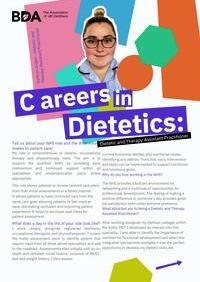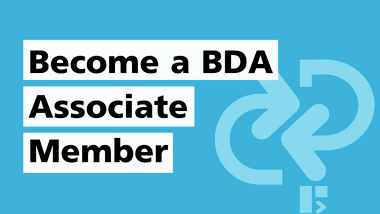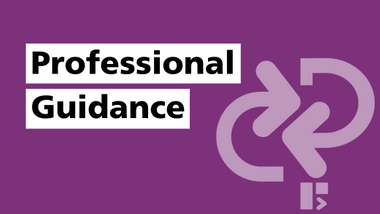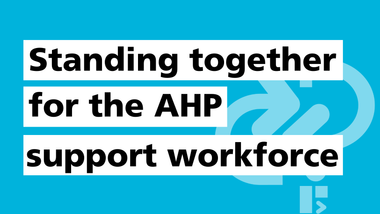The supportive and assistive levels of practice are distinct levels of practice within the BDA Dietetic Career Framework that encompass the dietetic support workforce.
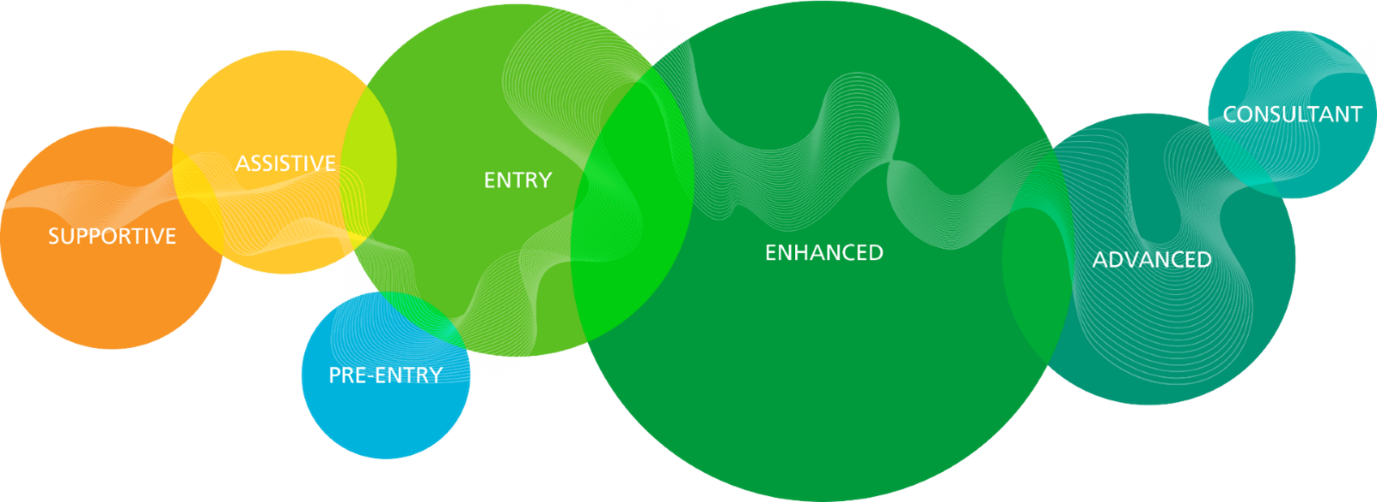
The dietetic support workforce is defined as those individuals that work for a dietetic service but are not regulated by the Health and Care Professions Council (HCPC). They work with registered dietitians to deliver dietetic care, working under a range of supervisory arrangements and within agreed guidelines and protocols. They are pre-dominantly employed in Agenda for Change band 3 and 4.
Roles and titles
Supportive and assistive practice is not a job title or role. Individuals working at these levels of practice will have many different roles and titles. Examples include:
- Dietetic support worker
- Dietetic assistant practitioner
- Dietetic assistant
- Dietetic associate practitioner
They work with registered staff to deliver service user and client care, working under a range of supervisory arrangements within agreed guidelines and protocols. They often work as part of multi-disciplinary teams under supervision but can also work with individual practitioners or autonomously within the scope of their role and under guidance and following training.
The BDA have developed guidance outlining the scope and contribution of the dietetic support workforce roles within the profession, mapping typical roles and responsibilities at the supportive and assistive levels of practice. It specifically focuses on roles and responsibilities for individuals who provide direct service user care, and is an extension to the Professional Practice Pillar within the BDA Dietetic Career Framework.
Education and experience
Within the supportive and assistive levels of practice, there are minimum education requirements which are detailed within the BDA Dietetic Career Framework. The requirements at each level have been aligned with all relevant national frameworks identified across the four nations.
It is important to note that experience cannot be a replacement for the minimum education requirements. This is to ensure there is a standardised level of education for roles within each level of practice, anywhere across the UK, regardless of the setting.
Organisations may wish to outline additional experience requirements when recruiting to a specific role, particularly if it is focused within a particular specialism. This will be at the discretion of the recruiting organisation. However, it is not appropriate for organisations to quantify how much experience an individual must have e.g., 2 years’ experience.
Accessing education and training
All members of the dietetic workforce have a responsibility at all stages of their career to keep their knowledge and skills up to date and to ensure they hold the relevant education and training to fulfil their role. This is essential to ensure you always work within your scope of practice.
However, we recognise that our workforce is experiencing challenges in accessing training opportunities which can result in recruitment and retention issues. Our ‘accessing education and training’ webpage has been developed with relevant and useful information to support you to access and engage in education and training.
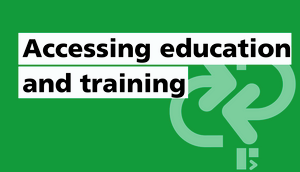
Case studies: working at supportive and assistive levels of practice
Working as a part of the dietetic workforce is a secure and rewarding career, with a wealth of career development and progression opportunities. Below we have highlighted two career case studies related to the support workforce, but you can take a look at other careers available to you within dietetics by visiting our 'Dietetic career case studies' webpage.
Supporting you through action and advocacy
As your professional body and trade union, we are committed to continually recognising your vital role in nutrition and dietetic services, valuing your contribution and acknowledging the challenges you face and we want to ensure we're taking steps to address these issues through action and advocacy. On DSW Day 2025, we hosted a webinar showcasing the work underway to support you in your roles. You can watch the recording below:
Further information and support
The BDA membership community supports the whole dietetic workforce. Join hundreds of other support staff in being an Associate member of your professional community.
Access important and relevant professional guidance to aid you in your practice including; outcomes information, The Model and Process, insurance, codes of professional conduct and more.
The Dorothy Hopwood Award for Professional Achievement recognises a dietetic support worker who has made a valuable and significant contribution to the profession.


